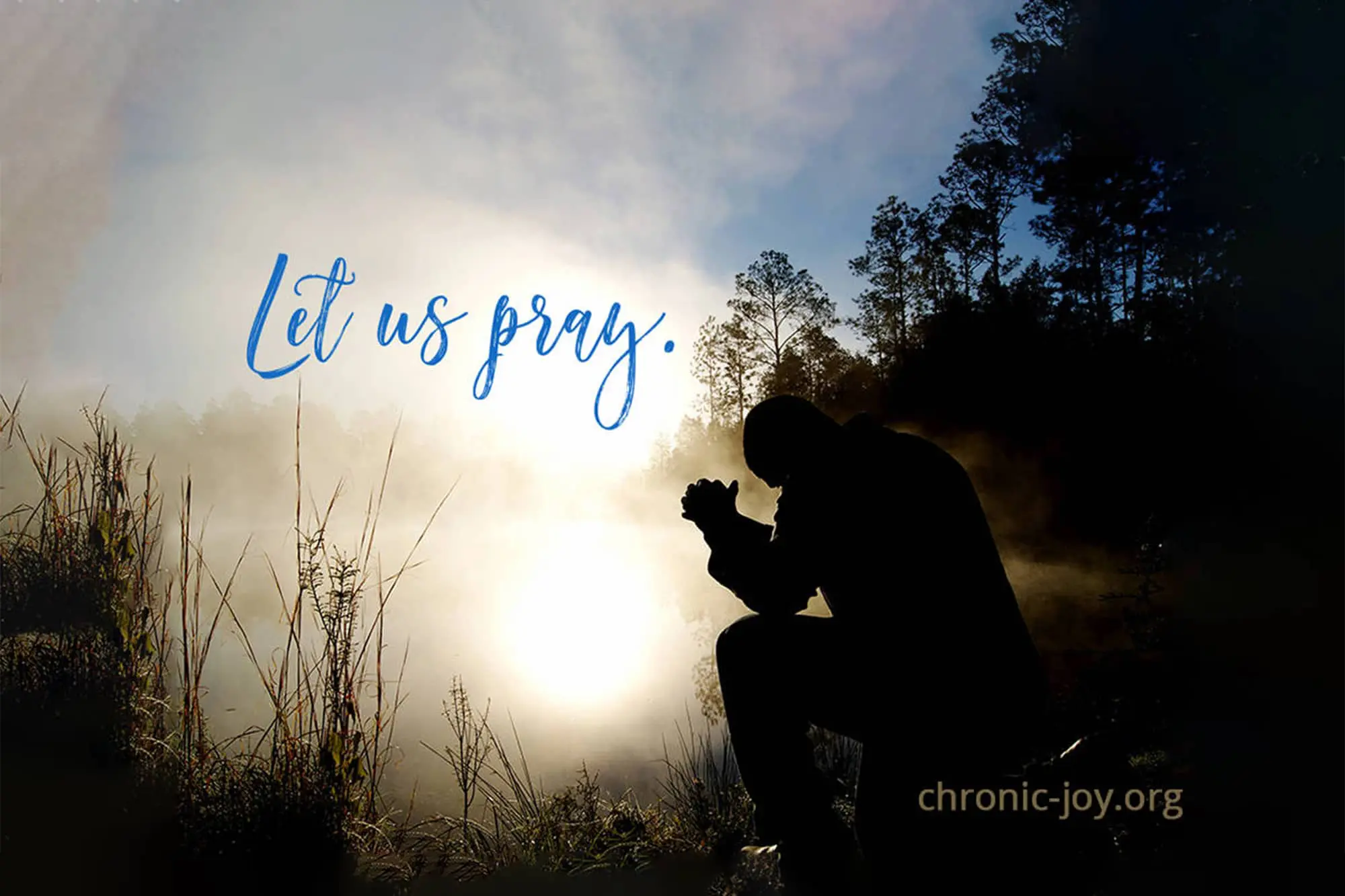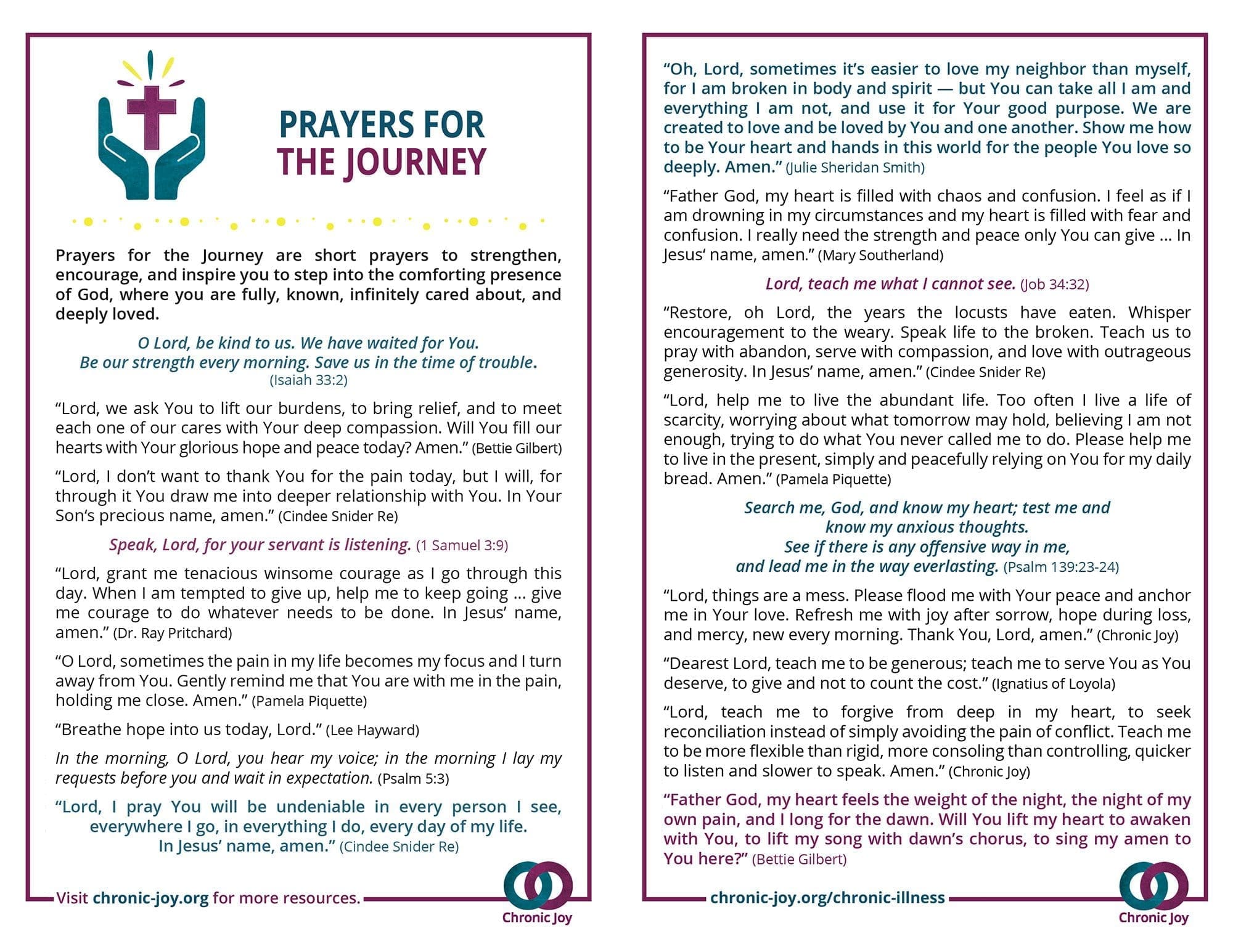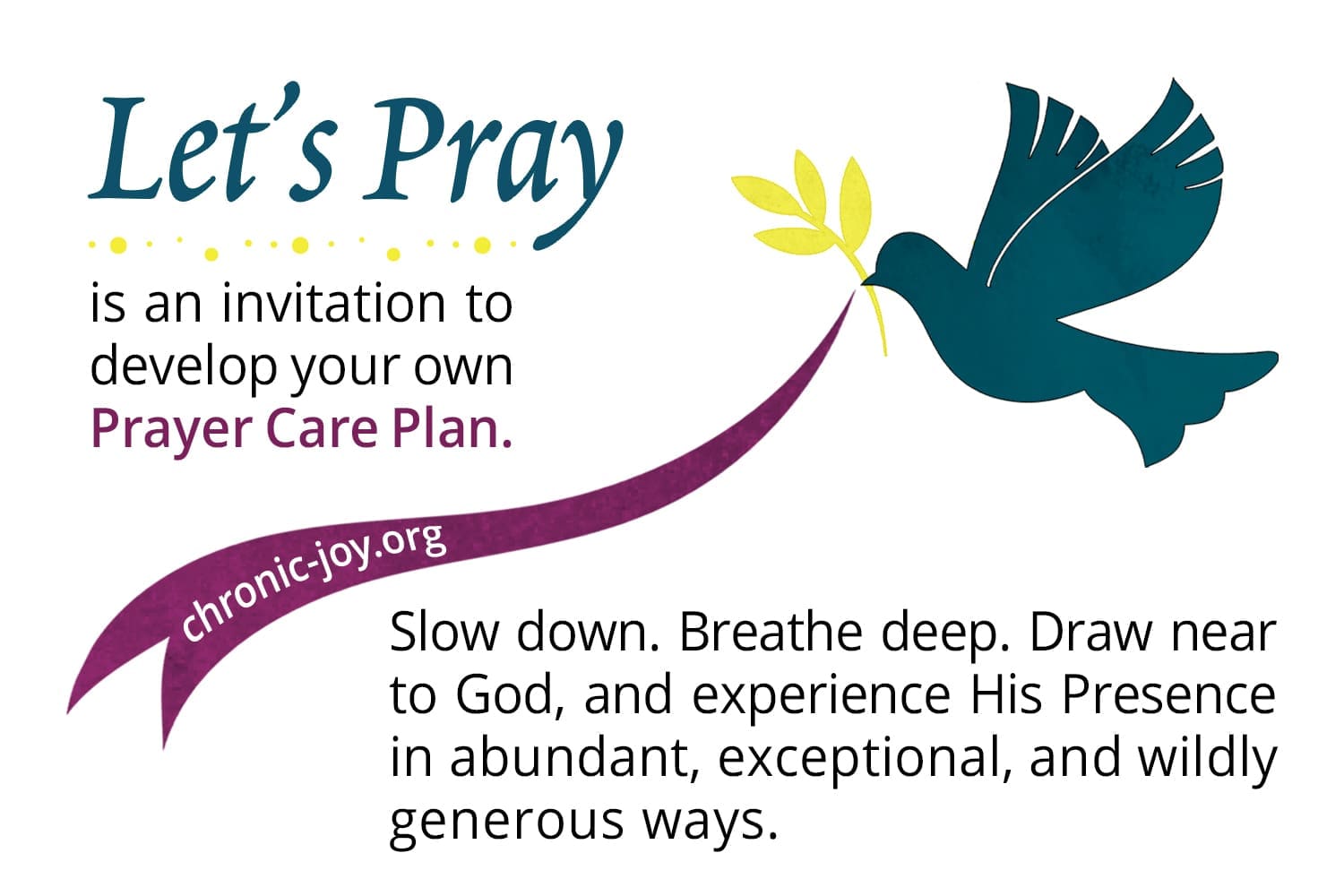
PRAYER & HEALING
I NEED TO TALK ABOUT PRAYER (AND HEALING)
Dear God, please heal my brother from his sickness. In Jesus’ name, amen.
How many of us have prayed a prayer like this?
How many of us have seen that prayer answered?
If you’re anything like me, the answer is, “Not as often as I would like!”
Illness is real and impacts lives. Prayer seems to offer us hope for physical healing, yet we often find that hope crushed. For this reason, praying for healing can be a sensitive topic.
I feel your pain—but if prayer is so important that it can crush our dreams, it is something we cannot ignore.
WHAT IS PRAYER?
When studying prayer as outlined in the Bible, we see that:
- anyone who loves God can pray (Isaiah 56:7).
- prayer is about all things (Ephesians 6:18).
- God will hear (Psalm 34:15).
- God will respond (Mathew 21:22).
PRAYER IS A RESPONSE
There are many responses to sickness and tragedy. Some people throw themselves into their work, while others seek a listening ear. Many Christians pray. If we call ourselves children of God, then we need to pray. Why? In a situation where it’s easy to feel hopeless, wordless, and paralyzed, prayer can:
- give us something practical to do.
- offer us hope that has nothing to do with medical advances.
- give us words (“I’ll pray for you.” or “Let me pray right now.”) when there is nothing else to say.
PRAYER REVEALS WHERE WE PUT OUR HOPES
If we believe God is all-powerful, we must ask Him for healing. After all, we must set our hopes on something, and prayer is a way to place our hopes on God. Whenever I no longer need to ask God for healing, it’s always because I have put my hope in something else—perhaps the passage of time or the advent of a new treatment. Yet, as Christians, we have no choice. We must place our hope in God first and foremost.
PRAYER IS NOT DEPENDENT ON US
In one sense, prayer is something that we do. We physically sit down, close our eyes, speak aloud, or form a prayer to our Heavenly Father in any number of other ways—but the outcome is not dependent on us. We cannot ensure our prayers are answered exactly how we want. If our loved one dies (even though we pray for recovery), it is not our fault. If our loved one is healed miraculously and the doctors are stumped, it is not our doing.
God uses our prayers. Our prayers do not use God. This is freeing!
THE PHYSICAL ACT OF PRAYING IS HARD
It’s all very well to know we should pray. Many Christians want to pray. We long to speak with our heavenly Father and place our hopes for healing in Him. Nevertheless, praying is hard. Why is this? Praying for healing is difficult because:
- it doesn’t come naturally to us. We have to learn how to pray. Even the disciples recognized this, asking Jesus to “Teach us how to pray” (Luke 11:1).
- it requires perseverance. Chronic illnesses last a long time (often a lifetime). Praying continually for that many years (like maintaining any habit or relationship—and prayer is both) will not be easy.
- it demands concentration. Sometimes, it can be hard enough to focus on a friend at church when talking to them in a busy room. How much harder is it to concentrate on a person who is not physically present? Add the real concerns surrounding caring for an ill person into the mix, and distraction abounds!
No matter how much we love Jesus or desire to live like Him, maintaining a prayer life is rarely easy, but it is worth fighting for today, tomorrow, and the rest of our time on earth.
HOW DO YOU PRAY FOR HEALING?
Is there a special formula to use? How long should our prayers be? Is it unspiritual to pray for (physical) healing? These are all legitimate questions, and the best way to answer them is to examine Jesus’ prayer in Gethsemane.
1. PRAYING CONTRADICTORY PRAYERS
In Gethsemane (Luke 22), Jesus prayed for two things:
Take this cup from me.
May your will be done.
It turns out that in God’s perfect plan, He could not have both these prayers answered as He wished. Jesus knew this (It was part of the plan since before the creation of the world.), but He prayed for them anyway, and in doing so, He permitted us to pray for them:
Please heal my loved one.
Please glorify Your name.
It is right and good to pray for relief from pain for others or ourselves, but because we do not know how God is to be glorified in the specific instances of our days, we pray contradictory prayers.
2. PRAYING BIGGER PRAYERS
Physical healing is important, but it is not everything. While Jesus wept in Gethsemane, He prayed for the eternal souls of those around Him. Many of His disciples came under threat by the authorities, their physical lives in danger, yet in the moments before His death, Jesus prayed they would:
- be protected from Satan (John 17, v. 15).
- maintain unity in relationships (John 17, v. 11).
- gain a desire for godliness (John 17, v. 17).
- grow closer to God and feel His love (John 17, v. 24).
My prayers are not big enough! Are yours?
According to God’s Word, we should be steadfast in prayer—and thankful! (Colossians 4:2). Whether those prayers are responsive, contradictory, difficult, big, or small, they can be hopeful, helpful, and liberating. LET US PRAY!
First published calledtowatch.com. Published with permission.


Emily J. Maurits
After working for several years in public health, Emily is studying theology. She believes we are all called to love suffering people because it is what Jesus did. She is passionate about equipping and encouraging others to do just that and founded calledtowatch.com for the family and friends of those with chronic illness. In addition to uncovering God's presence in the chaos of life, she enjoys reading, running, and writing. Check out her memoir Two Sisters & a Brain Tumour.

Prayers for the Journey
These short prayers can strengthen, encourage, and inspire you to step into the comforting presence of God, where you are fully known, infinitely cared about, and deeply loved.

Let's Pray
Let's Pray is an invitation to develop your Prayer Care Plan.
Slow down. Breathe deep and draw near to God, experiencing His presence in abundant, exceptional, and wildly generous ways.

Recent Comments